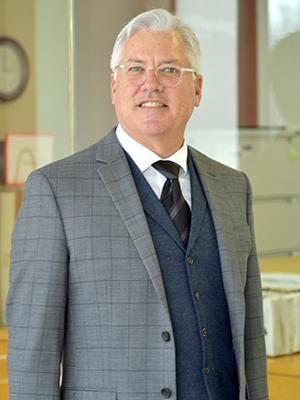Every year the Gallup poll ranks the most honest and ethical professions, and every year nurses top the list (the latest poll makes it 17 years in a row). But that’s not all that sets the profession apart: Nurses are by necessity some of the most creative, quick-thinking people in the workforce. Whether it’s determining the best way to move a patient or streamlining work processes so that more time can be spent with patients, nurses are constantly analyzing and problem solving. They are the brains behind many of the most ingenious developments in health care and technology, from designing scrubs to creating apps.
Clearly nursing has expanded beyond the clinic and the bedside to the halls of innovation and entrepreneurship. Nurses are well placed to generate new knowledge to help solve many of today’s pressing health care challenges because of their versatility, critical thinking skills, and knowledge of data and fast-flowing information.

One such nurse entrepreneur is Ken Dion, PhD, RN, MBA, a UT Austin School of Nursing alumnus. Ken wasn’t even in elementary school when he began his career in health care. As a five-year-old, he often accompanied his mother, who was a nurse and administrator of a senior living center, to her workplace and helped transport patient records in his wagon.
Later he worked as a fireman, paramedic and a medical assistant in a hospital emergency department before heading to a nursing program at the University of Central Florida in Orlando. While there, he joined the National Student Nurses Association, ran for office, and was elected secretary-treasurer. NSNA advisers encouraged him to pursue dual Master’s in Nursing Science and MBA degrees, which he did at The University of Texas at Austin, one of the few universities in the nation offering the dual degree program at that time.
Taking entrepreneurial courses at the business school and health care courses at the school of nursing at the same time helped him to see where the gaps in the marketplace were.
“A lot of the big challenges in the U.S. health care system are around flawed processes,” he said during a recent visit to Austin. “And who better to straighten those out than nurses? We are close to both patients and the processes.”
One area where nurses excel, Ken explained, is in their ability to adapt quickly to critical situations.
“When the solution to a medical emergency doesn’t present itself, nurses figure one out. If you’re out of pressure bags in the emergency department, you put a blood pressure cuff around the IV bag to get it flowing. We just have fantastic ideas.”
Sometimes these off-the-cuff solutions have the potential to be marketed, and Dion says he often encourages nurses to follow through by surrounding themselves with people who can help them commercialize their ideas and come up with a marketing plan.
“Nurses often don’t take credit for their work because they’re so busy making sure the job gets done,” he said. “I tell them it’s OK to take credit for their work, even in the form of those little bits of green paper! And you don’t have to wait until you know everything about running a business. Get in touch with people who do know about business to start building the right team around you.”
Ken is excited about the potential for nurse innovators and entrepreneurs to thrive in today’s health care climate. “Nurse have a birds’-eye view and at the same time get down to eye level to look at a situation both laterally and vertically,” he said. “This is why it’s crucial for nurses to have a more prominent place at the table when discussing policy and process changes. We recognize opportunities for innovation and have the leadership and skills to develop them.
This is what he did in 1999 when he founded Decision Critical, Inc., a cloud-based information systems management company dedicated to meeting the education, compliance and competency development needs of health care organizations. During his tenure with the company, he was awarded a patent for the Critical Portfolio™, an ePortfolio application. This first of its kind application allowed nursing to create a repository of their professional development artifacts to a 360-degree view of themselves as a competent professional and not just someone compliant with completing required continuing education.
Additionally, he was awarded a patent for Critical Staffer™, a reverse staffing system, and implemented the first high-availability electronic medical record in the health care industry. He has earned patents for technologies developed to enhance health care business objectives and processes.
After Decision Critical, Inc., was acquired by HealthStream, Inc., in 2012, Dion served as vice president and chief of nursing informatics for the company. He later founded TurnPath, LLC, a health care technology innovation incubator.
More recently, Ken joined the Johns Hopkins University School of Nursing as assistant dean for Business Innovation and Strategic Relationships where he is working with nurse scholars to develop innovative ideas, infusing entrepreneurship into the curriculum, and acting as a liaison between the JHU School of Nursing and other schools and outside organizations.
One suggestion that Ken frequently makes is for student nurses to take at least one business class, if the opportunity presents itself. In addition, he encourages nurses to avail themselves of community and civic resources, such as groups and clubs of retired business people who can act as mentors or guides into the business world.
It’s certainly a great time to be a nurse, he maintains.
“I read recently that forty percent of the jobs that will exist in 2050 haven’t even been thought of yet. Through innovation, nurses can make a direct impact on a single person’s life or a huge impact on an entire population,” he said. “Nurses can and should think about how they can translate their nursing skills into solutions that can be implemented locally, regionally, globally.”